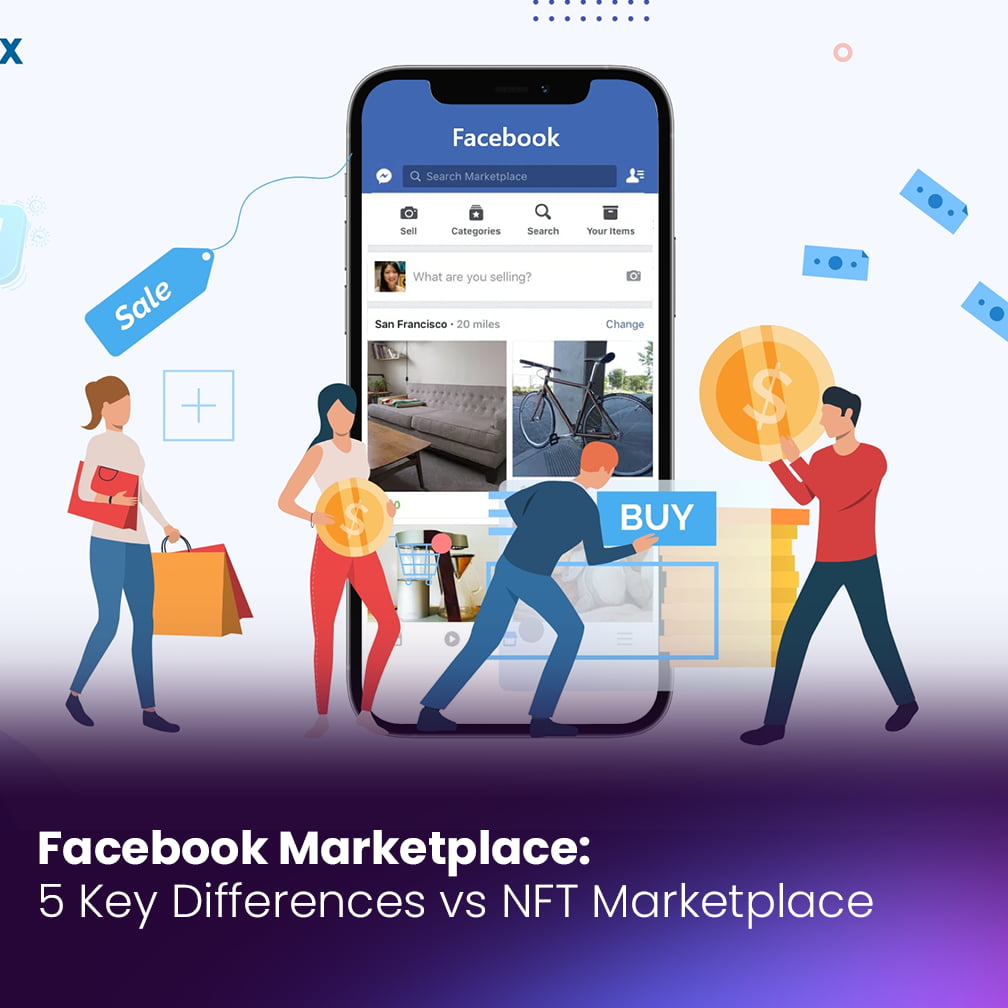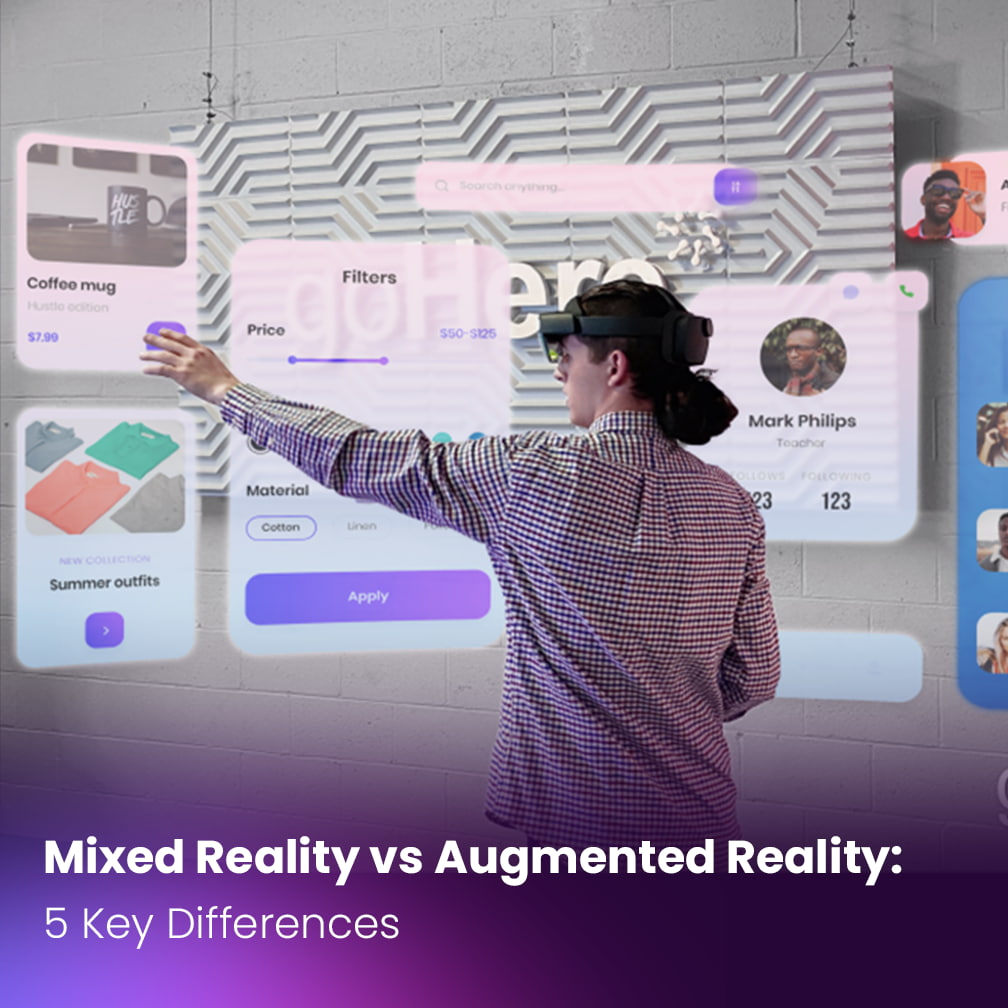Facebook Marketplace: 5 Key Differences vs Spatial Marketplace

Estimated reading time: 4 minutes
Facebook Marketplace has become a go-to for buying and selling used goods online. But new spatial marketplaces like OpenSea and Magic Eden seem poised to disrupt digital commerce. What are the key differences between Web2’s social marketplace giant and these rising decentralized upstarts?
This article will compare the two models across community dynamics, technological foundations, use cases, governance, and business models. Grasping the contrasts provides perspective on the clashes between legacy platforms and blockchain-based disruptors.
Table of contents
- Vibrant Communities vs Speculative Frenzy
- Virtual Marketplace Centralized vs Decentralized Technology
- Used Goods vs Digital Collectibles
- Opaque Corporate Oversight vs Transparent DAOs
- Virtual Marketplace Sales Commissions vs Decentralized Models
- New Paradigms Emerge
- Key Differences and Takeaways
- What Might Hybrid Models Look Like?
- Virtual Marketplace vs Spatial Marketplace Final Thoughts
Vibrant Communities vs Speculative Frenzy
A core strength of Facebook Marketplace is fostering vibrant local communities where trusted connections drive transactional activity. Users leverage shared social graphs to buy and sell with confidence.
In contrast, early spatial marketplaces attract a frenzy of speculative traders seeking digital gold strikes. Establishing enduring communities beyond hype-chasing proves challenging. Relationships matter less than flipping rare tokens for profit.
However, networks like NBA Top Shot showcase the potential of bonding enthusiasts around a shared interest when community takes priority over profit-seeking.
Virtual Marketplace Centralized vs Decentralized Technology
Facebook sits on an entrenched centralized technology stack controlling user data and platform governance. In contrast, spatial marketplaces operate via decentralized blockchain ledgers with transparent activity.
This hands oversight and ownership to users rather than platform authority. But decentralized systems come with familiar scaling challenges. The technology remains experimental.
Hybrid models seem likely, retaining decentralization where beneficial while leveraging elements of centralized servers to improve usability and performance.
Used Goods vs Digital Collectibles
Facebook Marketplace emerged to facilitate peer-to-peer used goods transactions, from furniture to cars. In contrast, spatial platforms specialize solely in blockchain-backed digital items like artwork, avatars, domain names, and video clips.
No physical exchange occurs – just a transfer of blockchain tokens verifying ownership. This expands commerce possibilities but also comes with new risks.
However, promising hardware innovations could enable hybrid physical/digital spatial goods backed by unique digital signatures guaranteeing authenticity.
Opaque Corporate Oversight vs Transparent DAOs
Facebook maintains full governance over policies and updates on its marketplace platform. But many spatial exchanges embrace decentralized autonomous organization (DAO) models where users collectively vote on key protocol changes.
This governance experiment is messy but points toward increased transparency and community ownership. Incumbents will feel pressure to decentralize aspects of their networks to compete.
Virtual Marketplace Sales Commissions vs Decentralized Models
Facebook earns a roughly 5% commission on sales via checkout in Marketplace. Spatial platforms also mainly subsist on transaction fees, but supplement via mechanisms like gas costs, crypto exchange spreads, and value-added services.
Additional decentralized models like staking rewards for governance participants and revenue sharing with content creators provide alternatives to simple sales cuts. User incentives can expand beyond basic purchase transactions.
New Paradigms Emerge
Today these two models contrast sharply. But looking ahead, the borders blur between social commerce Virtual Marketplace giants and blockchain-based disruptors vying for dominance in digital retail.
Distributed models offer clear benefits but must overcome usability hurdles. Meanwhile incumbents enjoy network effects but risk falling behind innovation curves. Integrating the best of both worlds seems the likely solution.
Key Differences and Takeaways
- Vibrant communities vs hype-driven speculation
- Centralized vs decentralized architecture
- Used goods vs digital collectibles
- Opaque corporate governance vs transparent DAOs
- Sales commissions vs tokenized incentives
Neither model has proven definitive superiority yet. But their contrasts offer insights into the fluid future of social retail.
What Might Hybrid Models Look Like?
We see glimpses of how old and new paradigms could merge:
- Verified resale markets for limited edition physical/digital goods
- Social marketplaces embracing creator monetization and governance
- Digital collectibles grounded by real-world utility and access
- User data ownership enabled by privacy-preserving computation
- Reputation systems enhanced by peer-based tokenized validation
- Cryptocurrency incentives driving engagement and community
Neither centralized nor decentralized models alone seem poised for dominance. Thoughtful combinations tailored to user needs look most likely to prevail.
Virtual Marketplace vs Spatial Marketplace Final Thoughts
Technology shifts power. As retail goes increasingly digital, architectures enabling collective ownership and governance warrant consideration alongside incumbent structures.
If carefully implemented with user benefit prioritized over profit extraction, new paradigms like blockchains and tokens could empower more equitable participation.
But that future relies on expanding access, education, and practical use cases so model benefits are enjoyed broadly. Progress demands empathy alongside invention.
Are we ready to guide these emerging tools toward positive impact, not just economic extraction? The choice is ours. Let us enter this new era thoughtfully.








